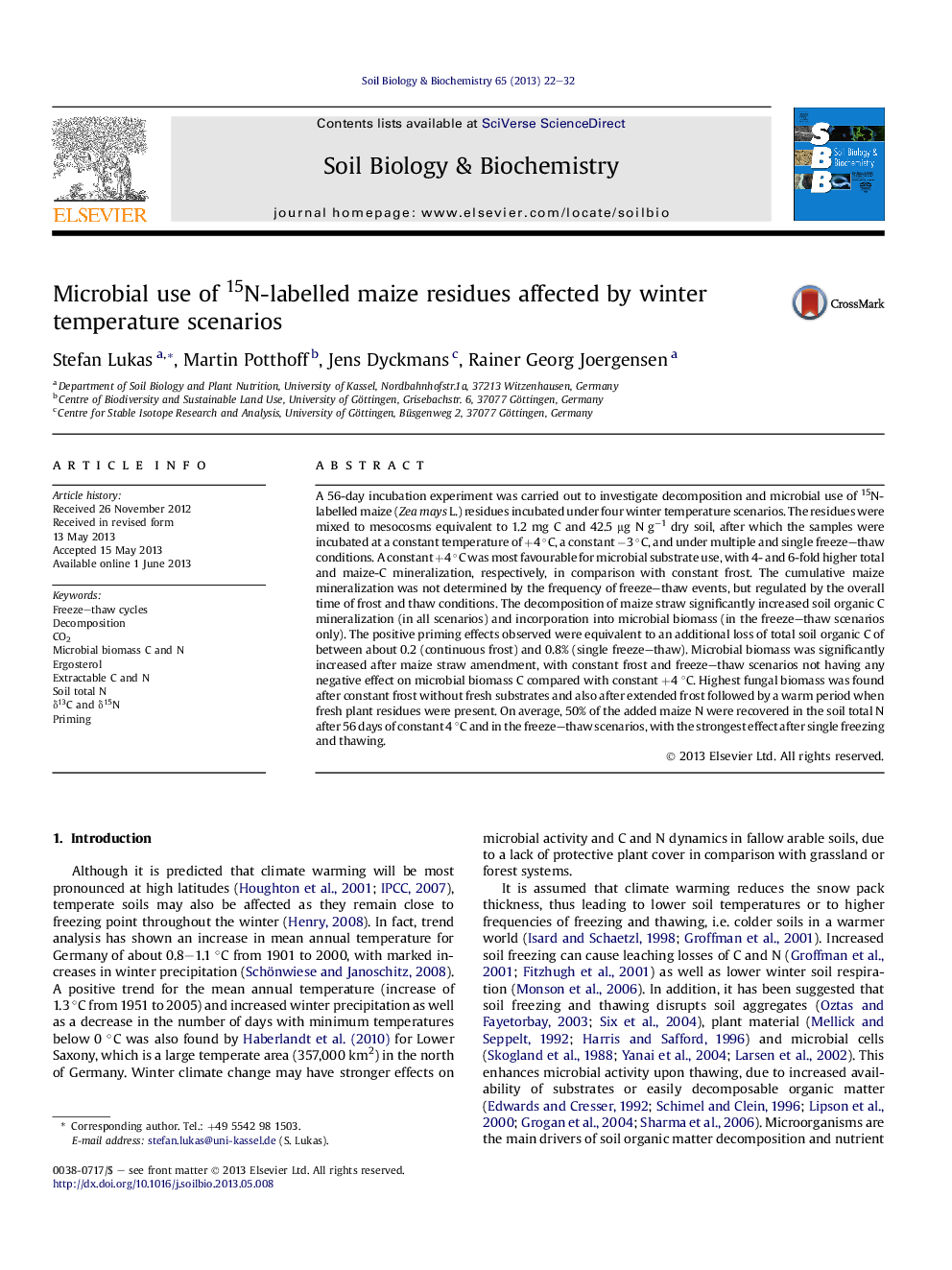| Article ID | Journal | Published Year | Pages | File Type |
|---|---|---|---|---|
| 8365193 | Soil Biology and Biochemistry | 2013 | 11 Pages |
Abstract
A 56-day incubation experiment was carried out to investigate decomposition and microbial use of 15N-labelled maize (Zea mays L.) residues incubated under four winter temperature scenarios. The residues were mixed to mesocosms equivalent to 1.2 mg C and 42.5 μg N gâ1 dry soil, after which the samples were incubated at a constant temperature of +4 °C, a constant â3 °C, and under multiple and single freeze-thaw conditions. A constant +4 °C was most favourable for microbial substrate use, with 4- and 6-fold higher total and maize-C mineralization, respectively, in comparison with constant frost. The cumulative maize mineralization was not determined by the frequency of freeze-thaw events, but regulated by the overall time of frost and thaw conditions. The decomposition of maize straw significantly increased soil organic C mineralization (in all scenarios) and incorporation into microbial biomass (in the freeze-thaw scenarios only). The positive priming effects observed were equivalent to an additional loss of total soil organic C of between about 0.2 (continuous frost) and 0.8% (single freeze-thaw). Microbial biomass was significantly increased after maize straw amendment, with constant frost and freeze-thaw scenarios not having any negative effect on microbial biomass C compared with constant +4 °C. Highest fungal biomass was found after constant frost without fresh substrates and also after extended frost followed by a warm period when fresh plant residues were present. On average, 50% of the added maize N were recovered in the soil total N after 56 days of constant 4 °C and in the freeze-thaw scenarios, with the strongest effect after single freezing and thawing.
Related Topics
Life Sciences
Agricultural and Biological Sciences
Soil Science
Authors
Stefan Lukas, Martin Potthoff, Jens Dyckmans, Rainer Georg Joergensen,
